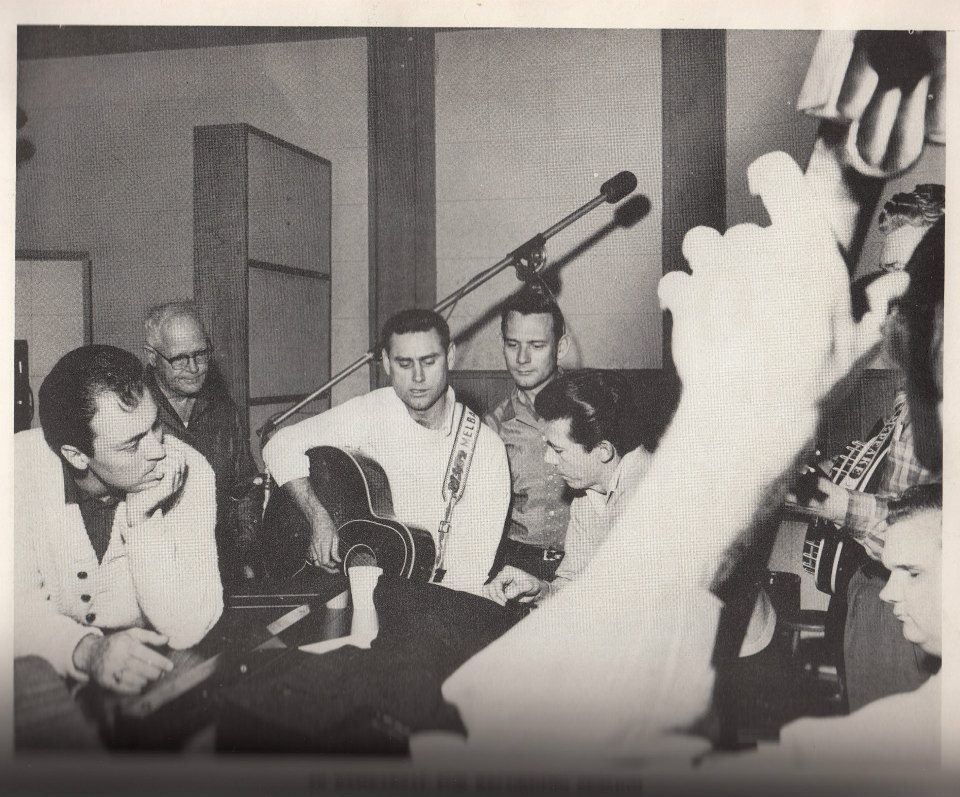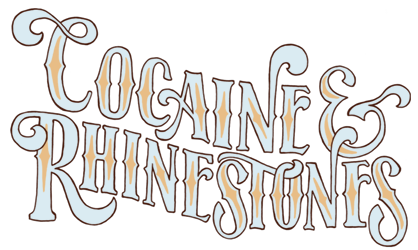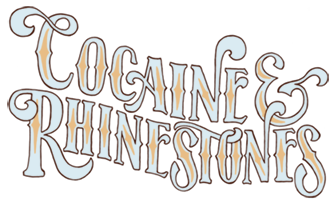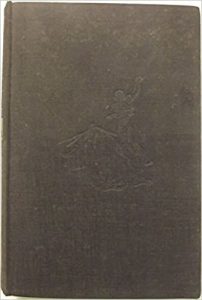
In the early 1960s, George Jones had a huge hit record featuring such a phenomenal vocal performance it instantly turned him into a living legend. He didn’t handle it well.
Contents (Click/Tap to Scroll)
- Primary Sources – books, documentaries, etc.
- Transcript of Episode – for the readers
- Liner Notes – list of featured music, online sources, further commentary
Primary Sources
In addition to The Main Library and the Season 2 Library, these books were used for this episode:
Transcript of Episode
As part of my agreement with Simon & Schuster to publish a book adaptation of Season 2, the transcripts that have been freely available for over a year will be temporarily removed from this website. Please consider ordering a copy of Cocaine & Rhinestones: A History of George Jones and Tammy Wynette through your favorite local bookstore or requesting that your local library order a copy you can check out.
Liner Notes
Excerpted Music
This episode featured excerpts from the following songs, in this order [with links to purchase or stream where available]:
- Benny Barnes – “Once Again” [Amazon / Apple Music]
- Benny Barnes – “No Fault of Mine” [Amazon / Apple Music]
- George Jones – “Window Up Above” [Amazon / Apple Music]
- George Jones – “Glad to Let Her Go” [Amazon / Apple Music]
- George Jones – “I Can’t Help It If I’m Still in Love with You” [Amazon / Apple Music]
- George Jones – “Half as Much” [Amazon / Apple Music]
- George Jones – “There’ll Be No Teardrops Tonight” [Amazon / Apple Music]
- George Jones – “Why Baby Why” (re-recorded) [Amazon / Apple Music]
- George Jones – “Tender Years” [Amazon / Apple Music]
- George Jones – “Aching Breaking Heart” [Amazon / Apple Music]
- George Jones & Margie Singleton – “Did I Ever Tell You?” [Amazon / Apple Music]
- George Jones & Margie Singleton – “Waltz of the Angels” [Amazon / Apple Music]
- Lefty Frizzell – “Waltz of the Angels” [Amazon / Apple Music]
- Kitty Wells – “Waltz of the Angels” [Amazon / Apple Music]
- Johnny PayCheck – “Waltz of the Angels” [Amazon / Apple Music]
- George Jones & Margie Singleton – “When Two Worlds Collide” [Amazon / Apple Music]
- George Jones – “She Thinks I Still Care” [Amazon / Apple Music]
- Johnny Cash – “Just One More” [Amazon / Apple Music]
- Faron Young – “She Thinks I Still Care” [Amazon / Apple Music]
- Connie Francis – “He Thinks I Still Care” [Amazon / Apple Music]
- Cher – “He Thinks I Still Care” [Amazon / Apple Music]
- Melba Montgomery – “Your Picture Keeps Smiling Back at Me” [Amazon / Apple Music]
- George Jones & Melba Montgomery – “We Must Have Been Out of Our Minds” [Amazon / Apple Music]
- George Jones & Jeanette Hicks – “Yearning” [Amazon / Apple Music]
- George Jones & Margie Singleton – “Yearning” [Amazon / Apple Music]
- George Jones – “The Race Is On” [Amazon / Apple Music]
- Jack Jones – “The Race Is On” [Amazon / Apple Music]
Excerpted Video
These videos were excerpted in the episode. For any number of reasons, YouTube may remove them in the future but here they are for now:
Commentary and Remaining Sources
These Liner Notes should be pretty short. That won’t be the case for every episode in the rest of the season but I do expect the average length of Liner Notes to become a bit shorter from here on out. As you’re beginning to see, this is a product of the whole season functioning as more of a single entity than Season 1’s relatively scattershot approach. Since the main content of all the remaining episodes is relevant or relative to the main content of all the other remaining episodes, there will be far fewer “odds and ends” left in the scrap pile. There is always at least a little bit of something else, though.
For everyone hunting all the links between various topics covered in this season, helado is a very popular frozen dessert that’s been served at bullfights since at least the early 1900s. As far as I know, Pablo Picasso never seriously tried to become a matador but he did design a traje de luces for Luis Miguel Dominguin.
I should point out that I’m aware it’s still standard in certain commercial genres of music for artists to take a piece of the writing credit on songs they didn’t actually write. This absolutely does still happen but it’s nowhere near as universally accepted as it used to be. A lot of people may still do this but in the time period I’m talking about nearly everyone did this. As mentioned in the Liner Notes of the Starday episode, there is still room in such a system for parasitic and ill-intentioned men to reveal themselves. You can find many examples of producers taking full writing credit for songs their artists wrote, sending them on their way with a flat fee or fancy car or whatever else. Again, that’s much different than participating in an ecosystem nearly every informed person voluntarily entered without complaint.
On a related note, the song “Tender Years” was credited to Darrell Edwards but it seems he actually bought the song for $100 off of Tommy Blake and one of the writers on both “Lonely Street” and “Am I That Easy to Forget,” Carl Belew.
In case anyone needs further evidence for my suggested perspective on Shelby Singleton’s reasons for having Margie and George Jones record together, it’s worth pointing out that their version of “Yearning” features Margie taking the verses alone just the way Jeanette Hicks did. It’s also worth mentioning there wasn’t even a photoshoot for the Margie and Jones LP on Mercury. They are pictured separately on the album jacket.
My main sources on bullfighting were all of those given in the previous episode, as well as Juan Belmonte’s autobiography, Juan Belmonte: Killer of Bulls. Various books on bullfighting over the years have printed all those different explanations people came up with for why Belmonte had such an unusual style, so once I found out he’d written an autobiography I had to go get the truth straight from the source. And I’m glad I did because there were several more important insights and connections to the rest of this season’s narrative. For everyone who doesn’t want to see to me talk about bullfighting anymore, you’ll be pleased to learn the intro of the next episode is not about bullfighting but you are going to have to deal with me speaking some more Spanish.
My main sources on all the George Jones stuff are all of those given in previous episodes, as well as everything on the Season 2 Library page. The source most pertinent to this episode which I’ve not yet discussed in any Liner Notes would be the Bear Family Records box set, She Thinks I Still Care: The Complete United Artists Recordings. As with their box set on the Starday and Mercury years, this is just an incredible resource. One of the first things that became clear to me when I started working on this season was I’d need to sit down and listen to everything I could of everything George Jones had ever recorded. These box sets made that a much easier and faster task than it otherwise would have been. And that’s just the music. All of the who, when and where data given on recording sessions kept the booklets from all of these box sets within an arm’s reach of my desk the whole time I was researching, writing and fact checking this season.
Okay, come back in a couple weeks to learn about Pappy Daily, Gene Pitney and how George Jones came to be on Musicor Records.


